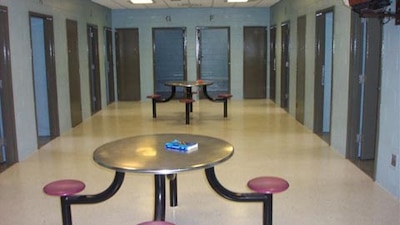A bill designed to give school districts better notice about students returning to school from treatment or juvenile detention ran into trouble Monday in the House Education Committee and was laid over for fine-tuning.

House Bill 10-1274 would require the state Department of Human Services or county departments to give prior notification to schools of students who are re-entering school after being in social services custody (i.e., foster children) and are leaving a day treatment facility, a facility school or the state hospital. Such children also would have to be deemed a risk of harm to themselves or others.
The intent of giving such notice is for human services agencies and schools to work out plans for safely getting such students back into school.
The measure was sparked by a Nov. 11, 2008, incident at Montrose High School during which a 14-year-old boy slashed the throat of a 16-year-old student. The victim survived and the attacker went to prison.
In the wake of that attack, Rep. Sue Schafer, D-Wheat Ridge, proposed a version of the bill last year but later asked that the measure be killed because of problems with the proposal.
Instead, the issue was studied last summer and autumn by a group of lawmakers, educators, police officials and youth services experts. The work of that group led to HB 10-1274.
But, that measure drew a lot of critical comment during a House Education Committee hearing Monday. Representatives of the state Office of the Child’s Representative, the Colorado Bar Association, the Denver Department of Human Services and the Colorado Juvenile Offenders Association all testified against the bill or raised concerns about it, saying the measure would unfairly stigmatize all foster children and wouldn’t solve the problem it’s intended to fix.
Mainline school interests, including the Colorado Education Association, the Colorado Association of School Boards and the Colorado Association of School Executives all supported the bill, saying it would lead to useful collaboration between welfare departments and schools that would help schools with successful reintegration of potentially dangerous students.
“I’m convinced it would help make schools safer. … The issue is collaboration,” said John Barry, superintendent of the Aurora schools.
After nearly 2 ½ hours of testimony, the committee turned to amendments. First, chair Mike Merrifield, D-Colorado Springs, announced that if the bill passed, he would send it to the House Health and Human Services Committee.
Then, Schafer started to offer “conceptual amendments” (legislative lingo for amendments that aren’t in written form). Rep. Debbie Benefield, D-Arvada, asked if lobbyist Tonette Salazar, who’s worked on the bill since last summer, could join Schafer to help with the amendments.
At that point Merrifield laid the bill over to a future committee meeting, saying possible amendments needed to be developed in a more orderly fashion.
Because the bill was taking so much time, earlier in the meeting Merrifield also laid over consideration of House Bills 10-1343, 1344 and 1345, three measures that would tighten up regulation of charter schools.
For the record Monday
- Senate Bill 10-018 – Grant-funded school awards program, passed House 61-1
- House Bill 10-1037 – Continuation of supplemental online program, Senate preliminary approval
- Senate Bill 10-062 – Technical changes in categorical programs, Senate preliminary approval
Use the Education Bill Tracker for links to bill texts and status information.
